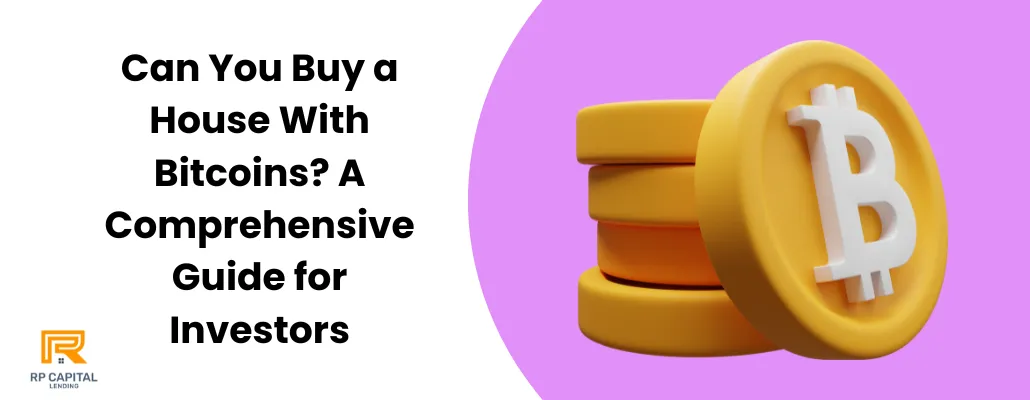Blog

Can You Buy a House With Bitcoins? A Comprehensive Guide for Investors
Imagine closing on your dream home with just a few clicks—no banks, no traditional paperwork, just Bitcoin.
Buying a house with Bitcoin is becoming more feasible as the world increasingly embraces digital currencies. But before you start spending your Bitcoin on real estate, there are several factors you need to consider.
What is Bitcoin?
Bitcoin is a decentralized digital currency, created in 2009 by an unknown person or group using the pseudonym Satoshi Nakamoto. Unlike traditional currencies, Bitcoin operates without a central authority or banks. Transactions are verified by network nodes through cryptography and recorded in a public ledger called a blockchain.
Bitcoins are created as a reward for a process known as mining, which involves solving complex computational problems. Bitcoin can be exchanged for other currencies, products, and services. Its value is highly volatile, making it both an attractive investment and a risky one.
Can You Buy a House with Bitcoin?
Yes, you can buy a house with Bitcoin, but the process is more complex than a traditional home purchase. Here are the key points to consider:
Seller Acceptance: The seller must accept Bitcoin as a form of payment. Not all sellers are open to this, so finding a willing seller is the first step.
Legal Implications: Real estate laws vary by country and state. Ensure that the transaction is legally binding and that all regulations are followed.
Tax Considerations: Bitcoin transactions may have tax implications. Consult with a tax advisor to understand the potential impact on your finances.
Transaction Fees: Bitcoin transactions can have high fees, especially for large amounts. Be prepared for this additional cost.
Volatility: Bitcoin's value is highly volatile. Ensure you agree on the Bitcoin value relative to the property price at the time of the transaction to avoid any disputes.
The Process of Buying a House with Bitcoin
Find a Bitcoin-Friendly Seller: Look for real estate listings or agents who specifically mention Bitcoin as an acceptable form of payment.
Price Agreement: Agree on the price in both Bitcoin and the local currency. This ensures clarity and avoids disputes due to Bitcoin's price fluctuations.
Legal Consultation: Engage with a real estate attorney familiar with cryptocurrency transactions to navigate the legal aspects.
Secure the Transaction: Use a reputable Bitcoin payment processor to facilitate the transaction securely.
Close the Deal: Finalize the paperwork and transfer the Bitcoin to complete the purchase.
FAQs About Buying a House with Bitcoin
1. Is it legal to buy a house with Bitcoin?
Yes, it is legal, but it depends on the country's and state's regulations. Always consult with a legal expert before proceeding.
2. Are there additional taxes for buying real estate with Bitcoin?
There may be tax implications, such as capital gains tax. Consulting with a tax advisor is crucial to understand these aspects.
3. What are the risks of buying a house with Bitcoin?
The primary risks include Bitcoin's price volatility, legal uncertainties, and potential tax implications.
4. How do I find a seller who accepts Bitcoin?
Look for listings on cryptocurrency-friendly real estate websites or work with a real estate agent who has experience with Bitcoin transactions.
5. Can I get a mortgage with Bitcoin?
Currently, mortgages are not typically available in Bitcoin. You will likely need to convert Bitcoin to fiat currency for mortgage transactions.
Conclusion
Buying a house with Bitcoin is an exciting possibility for cryptocurrency enthusiasts. While it involves some additional complexities and risks, with the right preparation and professional advice, it can be a smooth and rewarding process.
RP Capital Lending is a d.b.a of RP Capital Partners Inc (NMLS # 2469193) | Privacy Policy
Copyright © 2022. All Rights Reserved.
Disclaimer: Loans only apply to non-owner occupied properties. Rates, terms and conditions offered only to qualified borrowers, may vary upon loan product, deal structure, other applicable considerations, and are subject to change at any time without notice.

